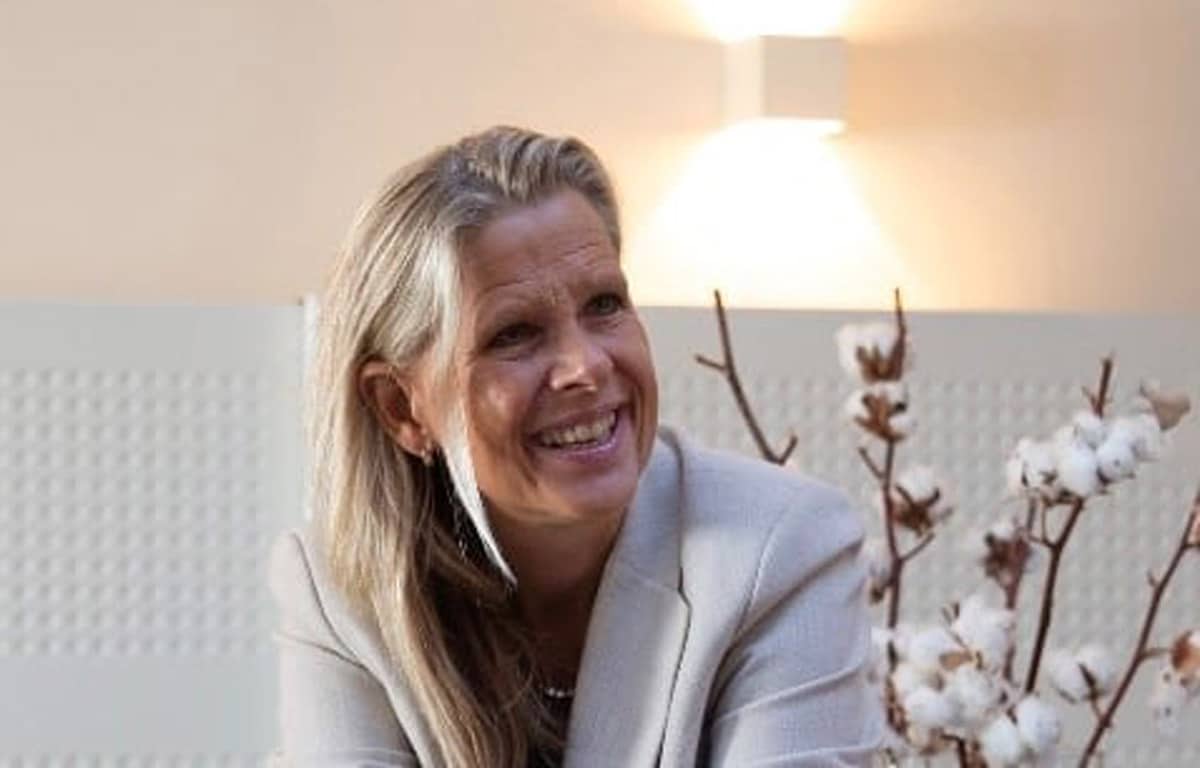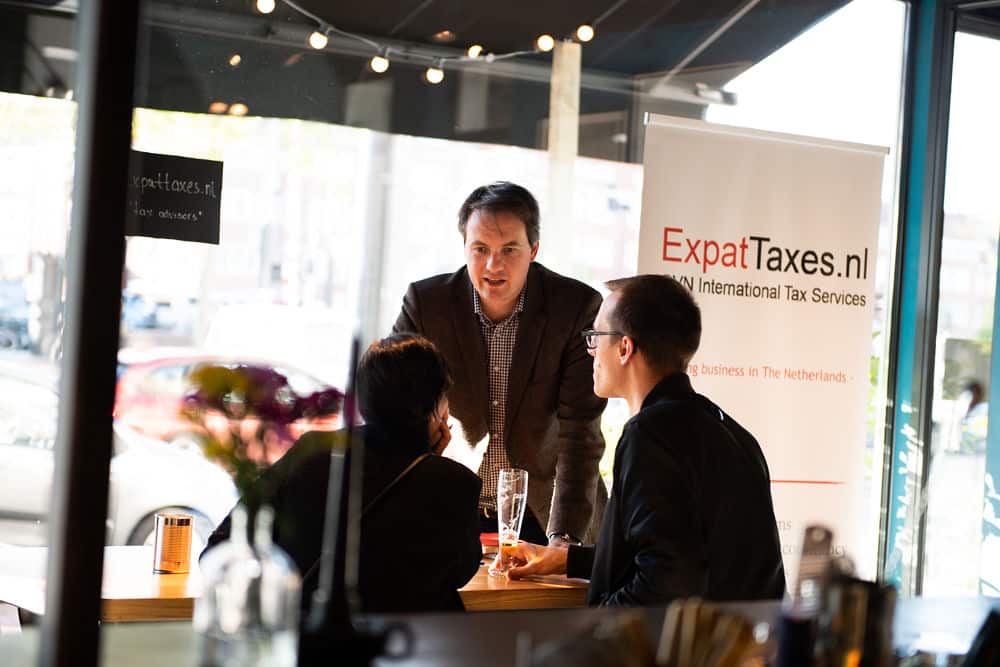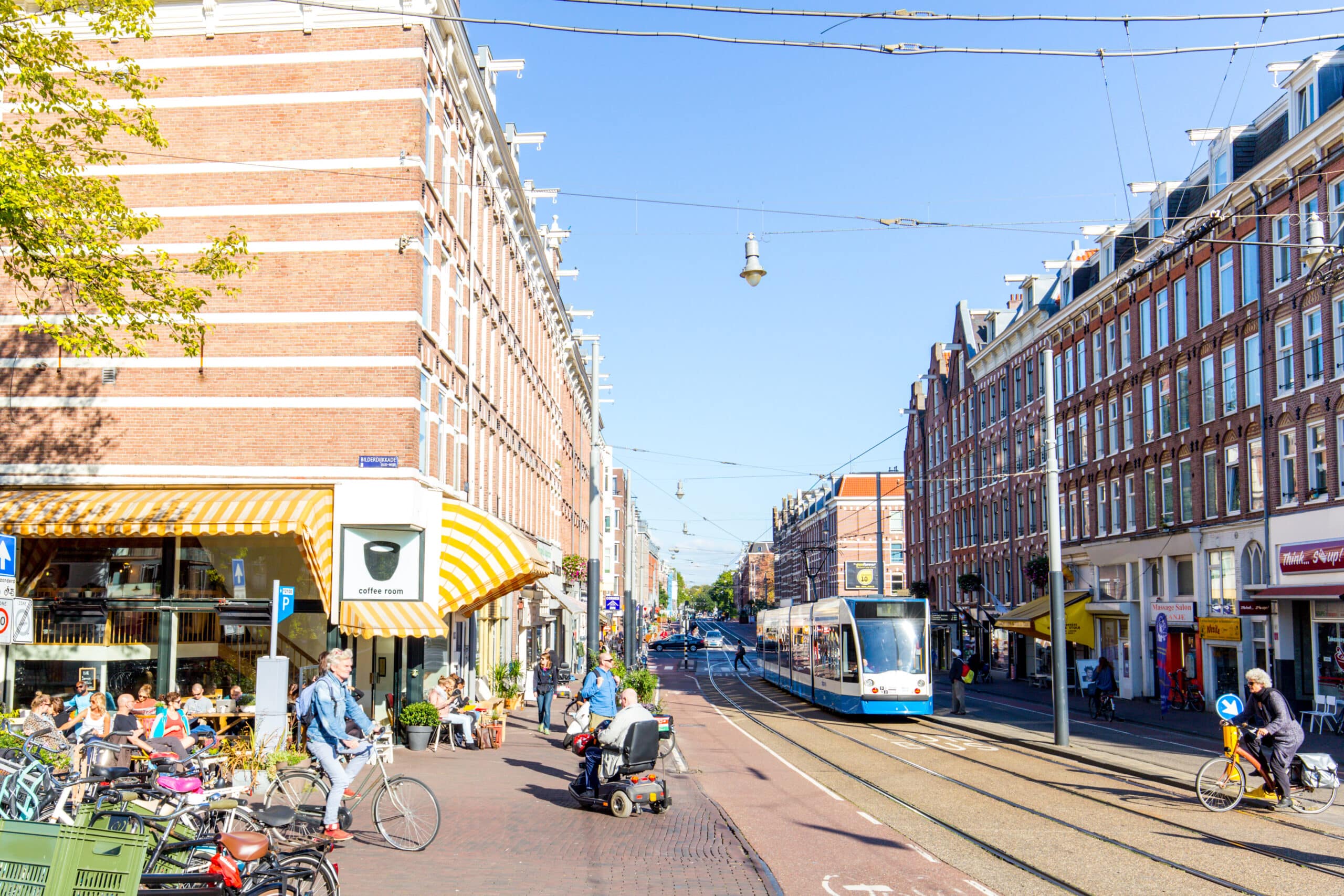Buying a home in Amsterdam 2025
Buying a home in Amsterdam or its surroundings is exciting. However, it can also be challenging, especially in 2025. The market is competitive, prices are rising, and securing your dream home requires preparation, patience, and a clear strategy. These practical tips will help you confidently navigate the process and stay grounded along the way.
1. Start with Your Numbers
Before you start searching for properties, it’s essential to know your financial boundaries. In the Netherlands, transaction costs typically range from 4-6% of the purchase price. These costs include notary fees and taxes, and you’ll need your own money to cover them.
If you end up overbidding and the home’s valuation is lower than the purchase price, you’ll need to use your savings to cover the gap. This is something every buyer should prepare for to avoid surprises later.
To avoid unnecessary stress, consult a mortgage advisor early on. They can help you calculate your borrowing capacity and ensure your budget is realistic. Knowing exactly what you can afford puts you in a stronger position when the right home comes along.
2. Work with Trusted Agents to Buy a Home in Amsterdam 2025
The Amsterdam market is complex. Ground leases, older foundations, and legal intricacies can all complicate the buying process. That’s where an experienced purchase agent comes in—they help you avoid costly mistakes and keep the process smooth.
It’s crucial to have a purchasing agent with the right network to get deals done. Demand far exceeds supply, and agents often prefer working with trusted colleagues who bring reliable clients. A certified purchase agent provides expertise and personalized attention, making sure your needs come first and guiding you every step of the way.
3. Focus on Energy Efficiency in Amsterdam 2025
In 2025, energy efficiency is more important than ever. Homes with an A or B energy label are not only more sustainable but could also qualify you for a mortgage rate deduction.
However, finding high-energy-label properties in Amsterdam’s older neighbourhoods can be challenging. If you’re considering a historic property, like a Rijksmonument, keep in mind that energy labels are not mandatory for these homes. If energy efficiency matters to you, think about budgeting for renovations or focusing on areas with newer housing stock. These steps can make a big difference in long-term savings.
4. How to Stay Realistic When Buying a Home in Amsterdam 2025
Buying a home in Amsterdam often requires compromise. With limited supply and high demand, it’s unlikely you’ll find a home that checks every single box on your wish list.
Don’t be discouraged if you lose out on a property. It’s normal to feel disappointed, but it doesn’t mean failure. Use the experience as an opportunity to better understand the market and adjust your approach.
Focus on what truly matters—like location and layout—and be flexible on less essential features. Staying realistic will help you avoid frustration and keep moving forward.
5. Prepare for Bidding Wars (and Know When to Stop)
Overbidding is still common in 2025, but buyers are approaching it more cautiously. It’s important to rely on professional advice to determine a home’s true value and avoid making emotional decisions.
Set a maximum bid limit before entering negotiations, and stick to it. Having a clear plan will help you stay calm and focused, even in competitive situations.
Here at How to Buy a House
At How to Buy a House, we have one simple goal: to share helpful information about homebuying and connect you with the best real estate agents in the field. While we focus on the Randstad region, we also have a vast network of professionals working throughout the Netherlands.
If you’re looking for an agent, the best advice we can give you is to team up with a local expert. Their network and knowledge are key to getting a deal done in today’s competitive market.
Let’s Help You Find Your Dream Home in Amsterdam 2025
Buying a home is about more than just closing a deal—it’s about creating a future. With patience, realistic expectations, and the right guidance, your dream home is within reach. Ready to start buying a home in Amsterdam in 2025? Contact us today via monique@howtobuya.house
Buying a Home in the Netherlands: Insights from Notary Anne-Marie Snel
Monique Burgemeester recently sat down with Anne-Marie Snel, a notary and owner of Prinsenhof Notarissen in Prinsenbeek, a charming village near Breda. Anne-Marie began her career in 1994 and quickly discovered her passion for notarial work. Over the years, she has built a strong reputation as a trusted notary, offering personal attention to her clients, including a growing number of expats. In this interview, Anne-Marie shares her insights into the home-buying process in the Netherlands and explains the critical role a notary plays in property transactions.
What is the Expat Home-Buying Journey in the Netherlands?
Once you’ve found a property and partnered with a reliable real estate agent, the next step is to involve a notary to finalize the legal aspects. As an impartial party, the notary reviews contracts to ensure that everything is handled without conflicts of interest.
You will visit the notary twice:
- First visit: To sign the purchase and sales agreement.
- Second visit: To sign the transfer deed. You will also sign the mortgage deed during this visit if you require a mortgage.
“In Amsterdam, the notary usually prepares the sales contract,” Anne-Marie explains, “while outside Amsterdam, this is typically handled by the seller. Additionally, Dutch law requires buyers to declare the source of their funds to prevent money laundering, a process overseen by the notary.”
What Should Expats Be Aware Of?
Anne-Marie emphasizes the importance of understanding certain details.
If you don’t speak Dutch, an official translator must be present when signing the deeds. This cost should be included in your budget.
“Expats should also consider which laws apply to their assets as residents of the Netherlands, such as tax laws or inheritance rules,” Anne-Marie notes. “For instance, you’ll need to decide who will inherit your possessions, including your home, after your death. The notary ensures compliance with both Dutch and international laws.”
What to Bring to the Notary’s Office
For your first visit, you will need:
- A valid ID.
- A completed “Herkomst Eigen Gelden” form (Source of Funds form), is required under the Money Laundering and Terrorist Financing (Prevention) Act (Wwft).
For your second visit, you will need:
- A valid ID.
- Proof of payment for the purchase price, if applicable.
- Any additional documents requested by the notary, such as a power of attorney if someone else is signing on your behalf.
“It’s always a good idea to check with the notary’s office beforehand to ensure you have everything in order,” Anne-Marie advises.
When Do You Get the Keys and Become the Official Owner?
“You officially become the owner of the house after signing the deed of transfer at the notary’s office,” Anne-Marie explains. Once the deed is signed and the notary confirms that the purchase price has been paid in full, the keys are handed over. This typically happens right after the signing, either at the notary’s office or directly with the seller.
How Does the Land Register Work?
The Land Register, or Kadaster, is a cornerstone of the Dutch property system. It records all properties, including ownership, boundaries, and legal rights such as mortgages.
“When you buy a property, the notary registers your ownership in the Land Register,” Anne-Marie notes. “This makes your ownership official and protects your rights. It’s a reliable system that helps resolve disputes and provides peace of mind.”
Anne-Marie’s Top Tip for Expats
Expats should not only focus on the home-buying process but also consider estate planning and tax implications, particularly regarding inheritance laws. These can vary significantly depending on your country of origin.
Her most important advice: “Always make sure you fully understand what you’re signing.”
About Anne-Marie
With decades of experience in both small and large notary offices, Anne-Marie has developed a unique perspective on her profession. As the owner of her practice, she provides personalized attention to every client. Fluent in English and knowledgeable about international laws, she is particularly skilled in helping expats navigate the Dutch real estate market.
If you’d like to learn more or get in touch with Anne-Marie, you can find her on LinkedIn: Anne-Marie Snel, or via Prinsenhof Notarissen.
Non-Resident Taxation in The Netherlands: What Expats Need to Know
Taxation and death seem to be unavoidable aspects of life. Generally speaking, taxes are a national issue; and, tax laws change when crossing country borders. For expats, tax consequences differ based on residency status and one’s situation. Residents are taxable on their worldwide income and non-residents on Dutch source income.
In this article, we asked Vincent van Wijgerden about the taxation of non-residents with Dutch source income with a special focus on Dutch real estate.
What Is Dutch Source Income?
Non-residents are taxed on specific Dutch source income, including:
- Employment income earned in The Netherlands,
- Business income generated in The Netherlands,
- Substantial interest ownership in a Dutch limited liability company (BV),
- Dutch property ownership.
Filing a Tax Return as a Non-Resident
A non-resident must file a tax return if the Dutch government sends a notice to file a tax return or if the non-resident has a tax liability. That is usually the case with property or business income. To file a Dutch income tax return, a tax number is required and may be requested at the larger local municipality. If you intend on staying or are staying more than 4 months in The Netherlands, you must register at your local municipality and a Dutch tax (BSN) number will be issued to you.
Deductions for Non-Residents
Non-residents are generally not eligible for deductions such as:
- Mortgage interest,
- Healthcare costs,
- Gifts,
- Alimony payments.
However, if you earn at least 90% of your income in The Netherlands and reside in an EU or EEA country, you may qualify for the same deductions as residents, provided the applicable tax treaty permits it. The Dutch tax year equals a calendar year and starts on 1 January and ends on 31 December. A tax return must be submitted before 1 May in the year after the end of the tax year. If you use a Dutch tax consultant, a 1-year extension of filing may be granted to you.
As a non-resident, you are not entitled to certain deductions such as the mortgage interest deduction and other deductions such as for healthcare costs, gifts and alimony payments. However, if you earn at least 90% of your income in The Netherlands and the tax treaty allows taxation of that income, you will be entitled to the same deductions as a regular resident taxpayer provided you live in an EU or EEA country.
Taxation of Employment Income
Non-residents are taxed on employment income based on the number of days worked in The Netherlands if their employer is based in The Netherlands. If the employer is foreign, taxation applies only if you spend more than 183 days in The Netherlands.
For directors of Dutch companies, their director’s salary is fully taxable in The Netherlands, subject to the terms of the relevant tax treaty.
Taxation of Dutch Property
Non-residents are taxed on Dutch property that is not their primary residence.
- Deemed Rate of Return: The Dutch system calculates a deemed rate of return based on the net property value (property value minus loans) as of January 1 each year. This deemed return is taxed at 36% (2024), using a rate of return set at 6.01%.
- Actual Income Not Taxed: Actual income, such as rental income or capital gains, is not taxed under this system.
- Deduction Restrictions: Costs related to property ownership, including as transfer tax, cannot be deducted.
Transfer Tax on Dutch Property
- Primary Residence: 2% transfer tax.
- Other Properties: 10.4% transfer tax.
- Exemptions: First-time buyers under 35 years old purchasing properties valued at €510,000 or less may qualify for an exemption.
A general exemption exists for taxation on savings and investments of 57.000,- euro per person. Taxation will only occur on the net value (assets minus liabilities) if the value of the property exceeds the 57.000 threshold.
As such it is a very simple system of taxation but not always fair. Although the real rate of return may be nil or negative, taxation will still occur using a deemed rate of return. The Dutch Supreme Court ruled this year (2024) that the Dutch tax authorities must use the real rate of return instead of the deemed rate of return if the real rate of return is lower than the deemed rate of return. To calculate the real rate of return, rental income and unrealized capital gains during the tax year must be taken into account. Costs may not be deducted in this calculation. If the real rate of return is higher than the deemed rate of return, the Dutch tax authorities must use the deemed rate of return. A rate of return in excess of the deemed rate of return is therefore beneficial from a tax perspective.
Special Considerations for Rental Properties
If a property is rented out under a long-term contract with tenant protections, a discount on the property value may apply for tax purposes.
To avoid double taxation on Dutch property, relief of double taxation will be granted in the country of residency of the taxpayer provided a tax treaty exists between the country of residency and The Netherlands. The tax treaty allows the country in which the property is located the right to tax including taxation of income and capital gains. At the same time, the country of residency of the taxpayer will need to exempt the rental income and any capital gains.
Vincent van Wijgerden is Sr. Tax Consultant and co-founder of GVN International Tax Services. He has a degree in Tax Law (with a focus on International Tax Law) from the University of Maastricht and a Masters degree in European Law from Leiden University. He has over 10 years of work experience in the field of taxation. You can contact Vincent via Tel: +31 (0)418 54 10 58 or Mail: info (@) expattaxes.nl
Feeling at Home in Amsterdam, how does this work?
Feeling at home in Amsterdam can take time, even after buying a house. Moving to a new country is a significant step, and while Amsterdam is a vibrant and welcoming city, it can also feel overwhelming. Many say, “Everyone speaks English,” but that isn’t completely true. Some locals may not speak English confidently. This isn’t a sign they aren’t welcoming; it’s often just a language barrier.
At How to Buy a House, we understand that settling into your new home is just as important as finding it. If you find it hard to feel at home, remember it is not you. By taking small, intentional steps, you can connect with your surroundings and feel more at ease in your new city.
Start by rediscovering your neighbourhood
Take a walk or bike ride without a set destination. You might stumble upon a charming bakery, a peaceful park, or a cosy cafe you hadn’t noticed before. Familiarity with your surroundings helps create a sense of belonging.
Look for local events to attend
Amsterdam is full of weekly markets, workshops, and gatherings where you can meet locals and expats. Websites like Amsterdam Meetup can help you find events nearby. Joining in makes it easier to feel part of the community. On Facebook are expat groups and people organising all sorts of events. Join the ones that feels good for you.
Your house should feel like home
Add personal touches like family photos, art, or nice furniture to create a warm and welcoming home in Amsterdam. A comfortable space makes settling into a new city easier. Consider hiring an interior designer to help create a cosy atmosphere. Coming home should always feel relaxing and inviting.
Find a favourite spot in the city that feels like yours
This could be a coffee shop, a park bench, or even a grocery store. Regular places to visit add a routine to your day and create a sense of stability. You might even find new friendships in these places. A simple smile or a quick chat with someone at your local cafe or grocery store can lead to meaningful connections.
Joining a group or club is another way to meet people and build connections
Amsterdam has a lot of options, from yoga and cycling to book clubs and social groups. Meeting like-minded people can help the city feel smaller and more welcoming. Don’t limit yourself to just your neighbourhood. Amsterdam is full of unique areas, each with its own character. Spend time in neighbourhoods like De Pijp, Jordaan, or Oud-West. Visiting new places can help you fall in love with Amsterdam even more.
Learning a few Dutch phrases can make a big difference
Simple greetings like “hallo” or “goedemorgen” to neighbours or shopkeepers can make a difference. Amsterdam locals may seem reserved, but they appreciate friendliness. Small conversations can lead to meaningful connections over time. It can also make daily tasks, like ordering coffee or shopping easy. Locals often appreciate the effort, even if your pronunciation isn’t perfect. Over time, speaking a little Dutch will make Amsterdam feel less like a foreign city and more like your own.
Be patient with yourself
Moving to Amsterdam is a big step, and it’s natural to feel overwhelmed. But in time you will find your place in this beautiful city. At How to Buy a House, we are here to support you every step of the way—from buying your home to settling into your new life. If you’re looking for more advice, resources, or personal guidance, send a message to monique@howtobuya.house. We’re here to make your transition smoother and your experience in Amsterdam truly memorable.
Early Access in Real Estate: What’s Really Going On?
In the Dutch real estate market, “early access” to listings is often promoted as a way for buyers to get a jump on new properties. But does this sneak peek truly give buyers an advantage? Here’s a breakdown of what happens behind the scenes.
How Early Access Works for Real Estate Agents
If your real estate agent uses Realworks and keeps clients in a centralized system, those clients may automatically receive a preview—a “sneak peek”—of new listings mostly one day before they go public. Established in 2004, Realworks is the first online CRM specifically for real estate agents in the Netherlands affiliated with trade bodies like NVM (Nederlandse Vereniging van Makelaars) or VBO (Vereniging Bemiddeling Onroerend Goed). Realworks provides agents with tools to manage listings, a mobile app, and the Move.nl platform with a bidding log.
When a new listing is created, here’s how it typically unfolds:
Shared Within the Agent Network: Listings are initially shared within Realworks so other agents in the network can see them. This preview helps agents prepare but is intended as an internal tool for professionals—not as a direct marketing opportunity for buyers.
Does Early Access Benefit Buyers and Sellers?
While early access can help agents gauge market interest, it doesn’t always offer the exclusive benefits some buyers may expect. Here’s why:
- For Sellers – Public Exposure Matters Most
Sellers tend to achieve the best results when their listing reaches the widest possible audience. Although an early preview helps agents prepare, the greatest visibility—and often the strongest offers—comes once the listing goes live on public platforms like Funda. This broad reach is key to attracting competitive bids.
- For Buyers – No True Advantage with Early Access
True competition for the property only begins when everyone can see the listing on public sites. While automated sneak peeks can provide a general sense of what’s coming up, this approach may lack the personalized attention some buyers need.
Some agents go a step further, handpicking listings that match their client’s specific needs, budgets, and preferences. This personalized method is often more effective, as it offers quality over quantity and aligns more closely with the buyer’s actual requirements, rather than just sharing every new listing that enters the system.
Is Early Access Misleading?
The term “early access” might give buyers the impression of exclusivity, but it primarily serves as a preparation tool for agents. Once listings go public, all buyers gain equal access, and the competitive process truly begins.
So, What Does Early Access Mean?
For buyers and sellers, early access is mainly an internal preview for agents, helping them prepare listings before they go live. Buyers should stay closely connected with their agents and be ready to act once listings go public. Sellers, on the other hand, benefit most from maximizing their audience through public listings, which is when genuine interest and competitive offers start to pour in.
In summary, while early access may sound appealing, it doesn’t change the essentials of successful buying and selling in the Dutch real estate market. In the Netherlands, “real estate agent” is not a protected title, and membership in a trade body like NVM or VBO is optional. For peace of mind, it’s always wise to work with a local, certified agent who can ensure quality and professionalism in your search—so don’t hesitate to ask about qualifications.
For more information, feel free to reach out to monique@howtobuya.house.
Meet De Financiële Alliantie: Your Go-To Mortgage Advisor for Expats
I recently met with De Financiële Alliantie in our Amsterdam office. They are a mortgage advisor based in Zwolle, but they cover the entire Netherlands, including Amsterdam.
Why Choose De Financiële Alliantie?
Joost Fokke, one of the founders, shared that helping expats has become a significant part of their business. “Expats from all over the Netherlands have found their way to us,” he explained. They recently welcomed Jan van Kooy back to the team. Jan is eager to meet clients and has a wealth of knowledge to share.
Jan mentioned, “Helping expats with solid advice is still a niche market. Many people might not realize that.” They know how challenging it can be to navigate the mortgage landscape, especially for newcomers.
User-Friendly Resources
De Financiële Alliantie is working on their English website, which is designed to be user-friendly. Joost emphasizes that it’s not just about having common information. “We provide a quality website alongside a personal service desk tailored to your financial needs.”
Their skilled staff will guide you throughout the process. Their website offers tips, tricks, and calculation tools to help you understand your options. If you’re serious about buying a home, they will connect you with a great advisor. This advisor will be your financial buddy during the journey.
Comprehensive Support
Jan explained, “Your advisor will always be available to answer questions and keep you grounded. They’ll stay in touch with everyone involved in the home-buying process.” De Financiële Alliantie keeps up with the latest mortgage news to ensure their blog section is full of relevant information.
If you’re looking for solid advice and a partner who genuinely cares about your home-buying experience, De Financiële Alliantie is here for you. Whether you have questions or want to discuss mortgage options, you can easily reach out.
Get in Touch
If you’re interested in speaking with a mortgage advisor, just call 038 421 44 57 or send an email to info@dfamail.nl De Financiële Alliantie is ready to assist you every step of the way.
About Me
My name is Monique Burgemeester, founder of How to Buy A House in The Netherlands. For over two decades, I have been dedicated to helping expats find their perfect homes. My mission is to provide the guidance and support necessary for a smooth and successful home-buying experience.
Is Bieden met Zekerheid Worth the Risk?
Is Bieden met Zekerheid the Right Choice for Homebuyers?
With homes in short supply and prices rising, many buyers consider bidding without a financing contingency to improve their chances. But is it the best option? A financing contingency allows you to cancel the purchase without penalty if your mortgage falls through, protecting you from paying 10% of the purchase price. The purchase contract sets a deadline for securing your mortgage, and you must prove serious efforts were made.
Bieden met Zekerheid offers a way to bid without a financing condition. It provides a certificate showing coverage (up to €750,000). If your mortgage falls through, insurance covers the penalties, giving you an edge in a competitive market.
Key Benefits for Buyers
- No financing contingencies: Sellers view your offer as more secure.
- Increased confidence: The insurance covers penalties if your financing falls through.
- Competitive advantage: Bidding without a financing condition helps you stand out in a tight market.
Costs of Bieden met Zekerheid
The cost is around €1,175, excluding additional costs like a valuation report. You pay a small amount per property.
Risks and Downsides of Bieden met Zekerheid
While Bieden met Zekerheid seems attractive, but it carries risks. Acting as your real estate agent without proper knowledge and depending solely on a certificate could lead to serious mistakes—or even prevent you from buying a home. This product is often used as a revenue model for mortgage advisors who are pushed into acting like real estate agents after just a two-day course. While the title of a real estate agent isn’t protected, real estate is still a profession that requires skill and experience. I always recommend working with a certified agent to avoid costly errors.
Is Bieden met Zekerheid Right for You?
Though the benefits are appealing, bidding without a financing condition has risks. If your mortgage isn't approved, insurance might cover penalties, but you could still lose the home. Make sure your finances are in order before making this decision.
Risks for Sellers
For sellers, accepting an offer without a financing condition may seem like a good deal, but there are risks. Without proper checks on the buyer’s financial stability, the sale could still fall through, leaving the seller to start over.
Conclusion
With 17 years of experience in the insurance industry, I strongly advise caution with Bieden met Zekerheid. Without solid financial planning and the right expert guidance, the risks are high. Always work with a certified real estate agent to protect yourself. Ensure your finances are solid before proceeding for a smooth transaction for both you and the seller. Keep your head up, do not get too disappointed if you lose a bid. With the right help, you will succeed!
I’m Monique Burgemeester. With a background in insurance, I bring a strong focus on transparency and safety to real estate. I’m open to new approaches, but my core belief is that buying a home should always be clear and secure. I’m dedicated to providing all the information you need to make informed decisions. Feel free to send me an email if you have any questions: monique@howtobuya.house
Open House Day: tips for buyers
Twice a year, the NVM Open House Day (NVM Open Huizen Dag) occurs. On this day, sellers open their homes for potential buyers to view. The next one is October 5th 2024. It’s a great opportunity to visit multiple properties without any obligations. Planning to attend the Open House Day? Be well-prepared by calculating your maximum mortgage beforehand so you can act quickly if you see the house you like.
Get Ready Tips
The Open House Day is a casual and non-committal event. However, with so many properties available, mixing them up is easy. You might wonder which house had that amazing roof terrace or whether it was the first or second property with the convenient elevator. Proper preparation can help you distinguish between the different homes.
How It Works
On Open House Day, walk into any home listed as participating. Find the full list of open houses here on Funda. There’s no need to sign up in advance—just visit any of the properties between 11:00 AM and 3:00 PM.
Respect the Seller’s Space
It’s important to respect the seller's home during your visit. If they ask you to take off your shoes, kindly do so. Avoid opening cabinets and drawers without permission—if you wish to look into something specific, politely ask first.
Found What You're Looking For?
If you find a property you love on Open House Day, the next smart thing is to team up with a local and certified real estate agent who can guide you through the next steps. If you already have a real estate agent, mention the houses you will visit. You can always plan a second viewing together.
Make the most of this to explore and find your dream home!
How Energy Labels Can Increase Your Buying Power
New Mortgage Rules: Boost Your Borrowing Power with Energy Labels
Starting in 2024, the mortgage landscape in the Netherlands is shifting, offering homebuyers more flexibility based on their property’s energy efficiency. Traditionally, you could borrow up to 100% of your property’s value, depending on your income, home value, and mortgage interest rates. However, new government guidelines allow you to borrow even more if your home is energy-efficient. These changes, recommended by the National Institute for Family Finance Information (Nibud), are set to impact anyone looking to buy or refinance a home significantly.
How Energy Labels Impact Your Mortgage
Starting in 2024, your maximum mortgage amount will factor in your home's energy label, together with your income, property value, and interest rate. This update ensures that your mortgage matches your financial capacity by considering potential savings on energy bills from a more efficient home.
For example, with an energy label C or D, you might qualify for an additional €5,000 on your mortgage. However, if your home boasts an A++++ rating and has an energy performance guarantee for at least ten years, your borrowing capacity could increase by up to €50,000. This change incentivizes homeowners to invest in energy-saving upgrades, as it directly influences their mortgage potential.
The Importance of Energy Labels
Energy labels rank homes based on their energy efficiency, from A (most efficient) to G (least efficient). Homes with better energy labels are more attractive to buyers due to lower heating and cooling costs. With the new mortgage rules, a better energy label means you can get a larger mortgage.
In Amsterdam, energy label A is already widespread, with over 127,000 homes achieving this rating. However, many historic homes, such as those in the Canal Belt, often have lower ratings like label G due to their age and architectural limitations. As a result, buyer preferences may shift, making energy efficiency a key factor in determining a home’s value and appeal.
Mortgage Interest Rates and Borrowing Percentages
This year, many lenders have lowered their interest rates, making it easier for homebuyers. About one-third of these rate cuts apply to short-term and long-term fixed rates, usually dropping by 0.05% to 0.10%. When you combine these lower rates with the chance to borrow more if your home has a better energy label, now could be a great time to buy or refinance a home.
Buying a Home in Amsterdam? Consider Looking Outside the Ring
If you’re looking to buy a home in Amsterdam and need to maximize your mortgage capacity, we advise you to explore areas outside the A10 Ring Road. Homes within the ring are highly desirable but are often older and less energy-efficient, making it harder to achieve a high-energy label. By expanding your search to areas outside the ring, you may find newer or more energy-efficient properties, allowing you to qualify for a larger mortgage under the new rules. This strategy could be crucial in securing the home you want with the financial flexibility you need.
What This Means for You
If you’re planning to buy a home or refinance your mortgage, it’s essential to consider your property’s energy label. While energy-efficient upgrades might require an initial investment, they can significantly increase your borrowing capacity and reduce your long-term expenses.
Conclusion
The new mortgage rules in the Netherlands strongly emphasise energy efficiency, making it a key factor in home buying. Starting in 2024, homes with better energy labels will enable buyers to borrow more, increasing the appeal of energy-efficient properties. If you’re targeting the Amsterdam market, expanding your search beyond the A10 Ring Road could help you find a home that aligns with these new guidelines, maximizing your borrowing power and opening up more opportunities in your home search.
By understanding and taking advantage of these changes, you will make smart decisions that improve your quality of life and financial stability. If you need help finding a mortgage advisor, real estate agent, or energy label expert, email us at monique@howtobuya.house. We’ll connect you with a trusted professional to assist you.
What to Bid to Get My Home? Understanding the Amsterdam Housing Market
Market Trends
The trend in Amsterdam’s housing market is clear: properties often sell well above their initial listing prices. Homes listed at €6000 per square meter can end up selling for over €9000 per square meter. This significant increase is not an exception but a growing trend. Only about 30% of homes are owner-occupied, adding to the market's uniqueness and intensity.
In Amsterdam, the housing market is unique and competitive. Seller's agents often list homes at low prices per square meter. This strategy attracts many buyers, sometimes over 100 for a single property. Among these buyers, there is usually someone with deep pockets, leading to a high-stakes, closed-bid situation. Here’s how you can navigate this market successfully.
The Closed Bid Process
When a lot of interest is generated, sellers and agents choose a closed bid system. Buyers get one chance to submit their best offer. It's not just about the money; the conditions attached to the offer are crucial too.
Factors Sellers Consider
- Buyers with a substantial amount of cash or cash offers are preferred as they provide immediate liquidity and lower the risk of financing issues.
- Having an agent adds security and professionalism to your bid.
- Teaming up with a reputable mortgage provider is beneficial if you need a mortgage.
- Offers with fewer conditions, such as flexible closing dates, are more attractive.
The Importance of a Secure Bid
Even if you submit the highest bid, it might not be chosen if it's deemed insecure. Sellers prioritize stable and secure bids. A secure bid, even if slightly lower, can outweigh a higher but riskier offer.
Tips for Prospective Buyers
- Work with a local agent who has a diploma and knows the market. Your chances of success increase by 100%. Agents only get paid by one party, either the seller or the buyer. They prefer dealing with buyers who are accompanied by a well-known agent. The real estate profession isn't protected, so ensure your agent has basic knowledge and credentials.
- Use the Right Professional for Each Task. Handling a mortgage is different from buying a property. A mortgage advisor is the link between you and the bank. They find the best mortgage rates and conditions for you, handle document submission, and manage your mortgage application. The mortgage advisor also communicates with the bank for you. A real estate agent helps you find and buy a home, attends viewings, researches the market, negotiates prices and terms, offers advice on building foundations, VvE, prepares the written offer, and more. Use the right professional for each job.
By understanding these roles, you can ensure you use the right professional for each part of your home-buying journey. The key is to combine a strong financial offer with secure conditions, increasing your chances of securing your desired home.
Stay Realistic and Follow Advice
In Amsterdam’s competitive housing market, it's crucial to stay realistic and follow your agent's advice. Understand that properties often sell for much more than the listing price. Trust your agent's insights on pricing, market conditions, and bidding strategies. They know what it takes to make a winning offer and can guide you through the process effectively. Being flexible and open to their recommendations can significantly increase your chances of securing your desired home.
If you have questions, send an email to monique@howtobuya.house.










